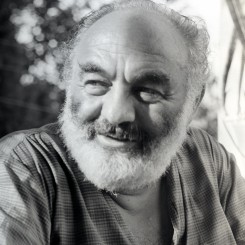In a Carpathian village, Ivan falls in love with Marichka, the daughter of his father’s killer. When tragedy befalls her, his grief lasts months; finally he rejoins the colorful life around him, marrying Palagna.
In a Carpathian village, Ivan falls in love with Marichka, the daughter of his father’s killer. When tragedy befalls her, his grief lasts months; finally he rejoins the colorful life around him, marrying Palagna.

One of the 20th century's greatest masters of cinema Sergei Parajanov was born in Georgia to Armenian parents and it was always unlikely that his work would conform to the strict socialist realism that Soviet authorities preferred. After studying film and music, Parajanov became an assistant director at the Dovzhenko studios in Kiev, making his directorial debut in 1954, following that with numerous shorts and features, all of which he subsequently dismissed as "garbage". However, he was able to make Shadows of Forgotten Ancestors (1965), a rhapsodic celebration of Ukrainian folk culture, and the world discovered a startling and idiosyncratic new talent. He followed this up with the even more innovative The Color of Pomegranates (1969). Paradjanov spent most of the 1970s in prison on almost certainly rigged charges of "homosexuality and illegal trafficking in religious icons". However, with the coming of perestroika, he was able to make two further films before succumbing to cancer in 1990.
FILMOGRAPHY
1951 Moldavian Fairy Tale (Moldovskaya skazka)